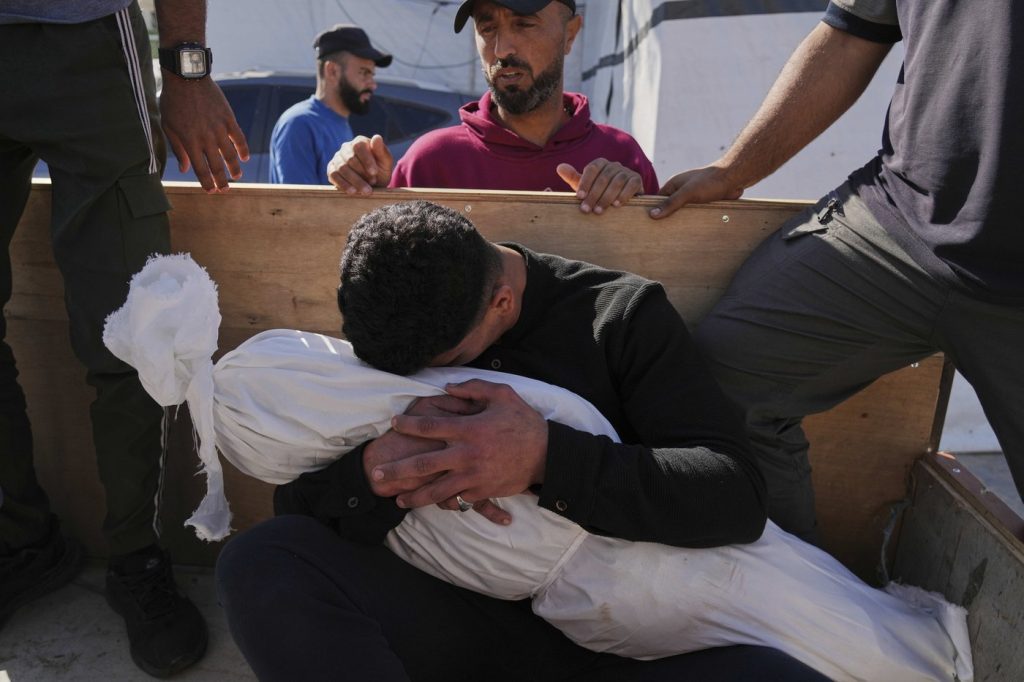BRUSSELS (AP) — Dutch Foreign Minister Caspar Veldkamp announced on Wednesday that the Netherlands is taking a firmer stance on Israel's actions in Gaza. He emphasized the need for a review of a European Union agreement that governs trade ties between the EU and Israel. This declaration comes amid continuing violence, as Israeli strikes in Gaza resulted in the deaths of at least 59 individuals, including women and children, hospital officials reported. The conflict is now entering its 20th month, exacerbating the humanitarian crisis in the region.
With Israel restricting all forms of aid, including food and medicine, into Gaza for over two months, humanitarian organizations have issued warnings about the dire conditions facing civilians. Veldkamp noted his concerns about the ongoing blockade, indicating that Prime Minister Benjamin Netanyahu's plans to escalate military operations in Gaza are troubling. He further mentioned that suggestions by some Israeli ministers for an occupation of the territory must be critically examined.
During a meeting of EU foreign ministers in Warsaw, Veldkamp stated, “We are drawing a line in the sand because the situation in the Gaza Strip is dismal, a catastrophic humanitarian situation.” Once a staunch supporter of Israel, the Netherlands is now advocating for a more rigorous approach to ensure compliance with international humanitarian law.
As ties between the EU and Israel are regulated under an Association Agreement, which came into force in 2000, Veldkamp called for the Dutch government to block the agreement until it can be verified whether the Israeli government is adhering to its stipulations, which require respect for human rights and democratic principles.
Palestinian health officials have reported that Israel's military actions have resulted in over 52,000 fatalities in Gaza, a figure that includes many women and children. The casualty figures do not differentiate between combatants and civilians. The violence escalated following an attack by Hamas-led militants on southern Israel, which resulted in 1,200 deaths and the abduction of approximately 250 hostages. Israel has placed the responsibility for the high civilian death toll on Hamas, which conducts operations from civilian infrastructure, including schools.
Recent developments in the conflict included a plan approved by Israel to intensify military operations in Gaza. This plan may involve seizing parts of Gaza, maintaining control over captured territories, forcibly relocating Palestinians to southern Gaza, and managing the distribution of aid with private security firms. Additionally, Israel is mobilizing tens of thousands of reserve soldiers to implement these strategies.
Concerns raised by other EU foreign ministers echo Veldkamp's worries. Belgian Foreign Minister Maxime Prévot urged the EU and the international community to take urgent action, calling the current situation “an absolute shame” and “not acceptable.” Luxembourg Foreign Minister Xavier Bettel, who has recently spent significant time in the region, expressed frustration that his calls for restraint from Israel had largely gone unheeded. He emphasized the necessity of dialogue to find viable solutions and warned against creating situations that jeopardize the existence of the Palestinian population and statehood.
The Dutch initiative is set to be discussed during the EU foreign ministers' meeting, although it remains uncertain how the 27-member bloc will respond. The EU exhibits a marked division over its strategy regarding the conflict, with nations like Austria, Germany, and Hungary generally favoring Israel while Ireland and Spain have been vocal in their support for Palestinian rights. Last year, Ireland and Spain attempted to persuade their EU counterparts to investigate Israel's compliance with the agreement, reflecting a broader discord within the bloc on how to approach the ongoing violence and humanitarian crisis in Gaza.











